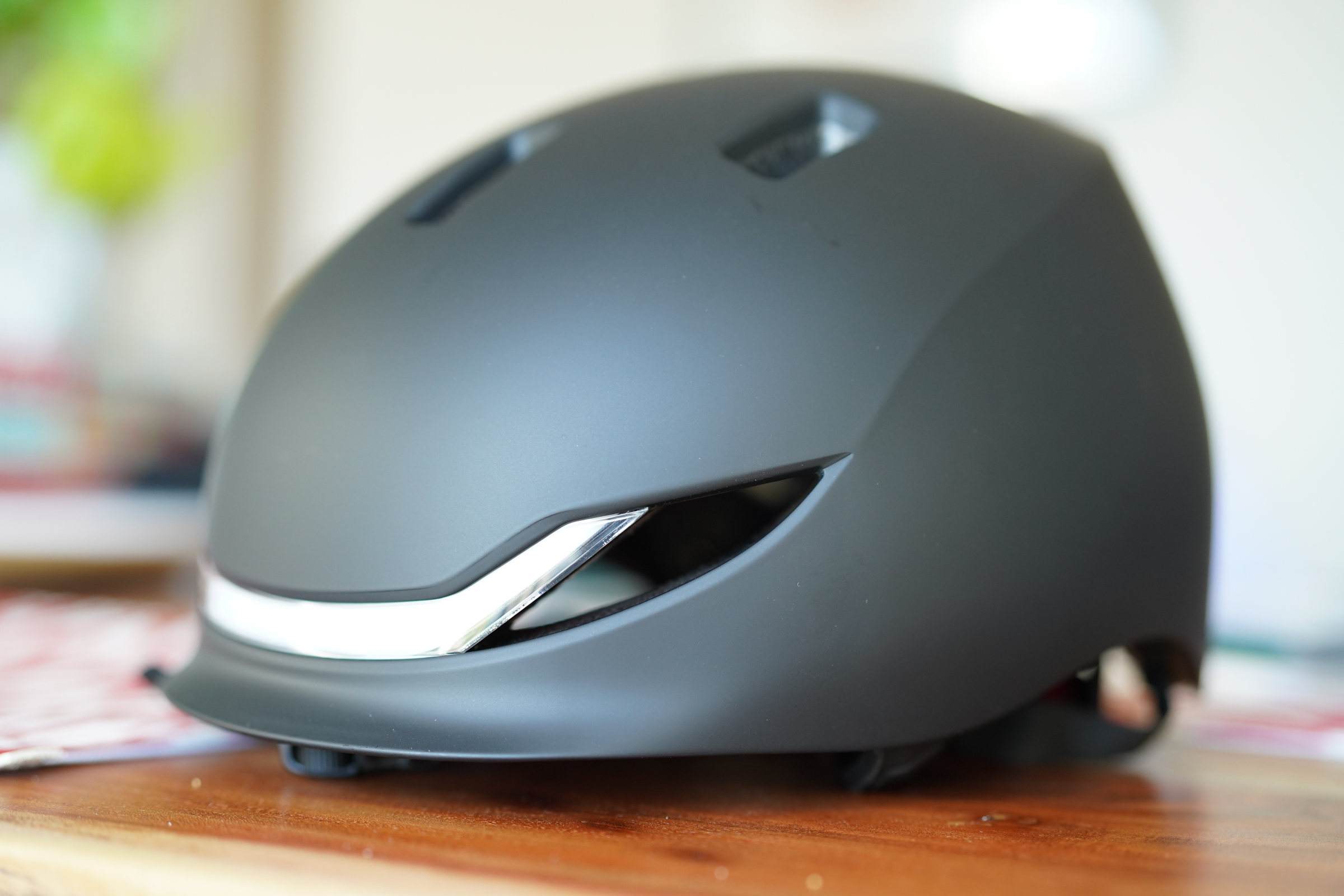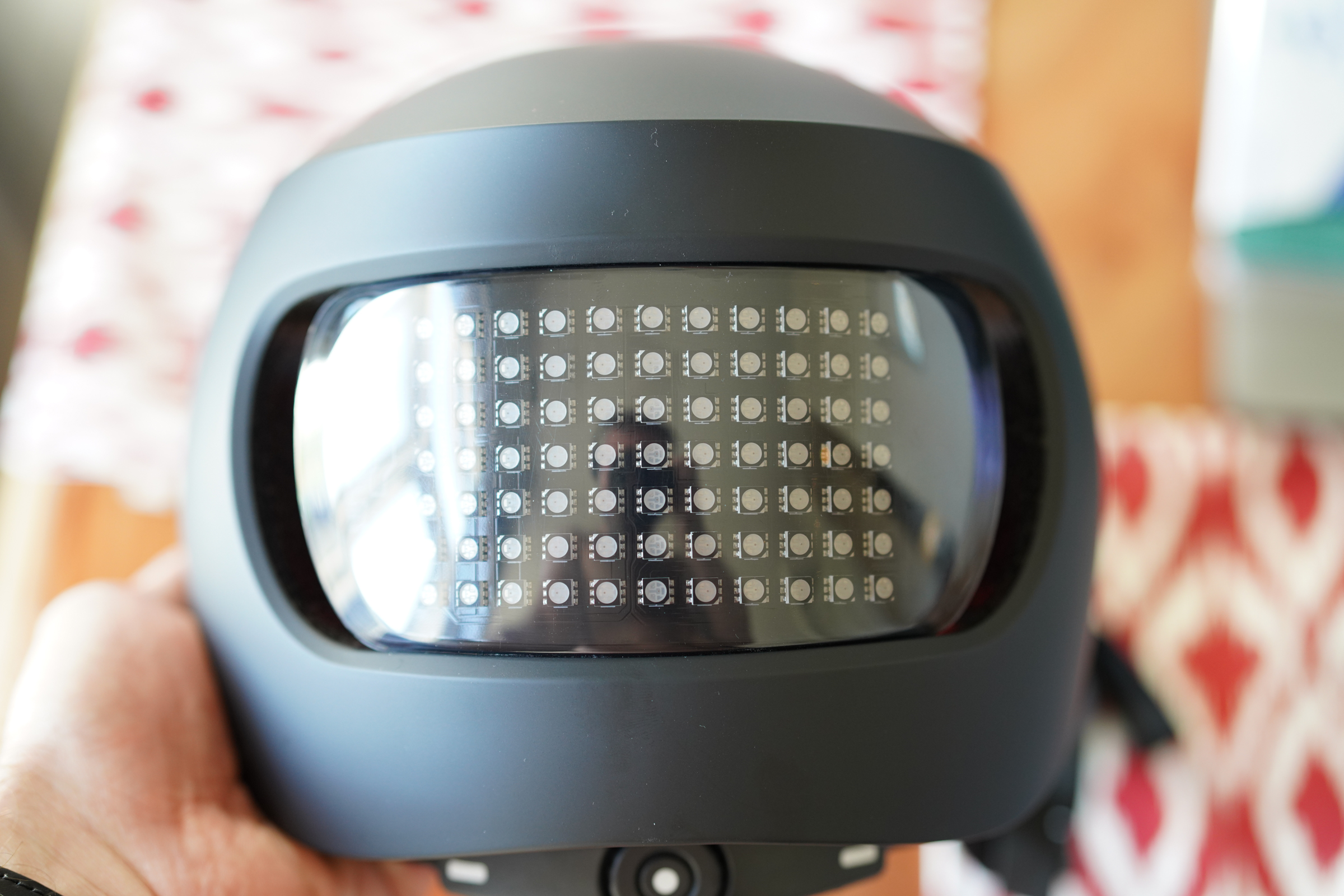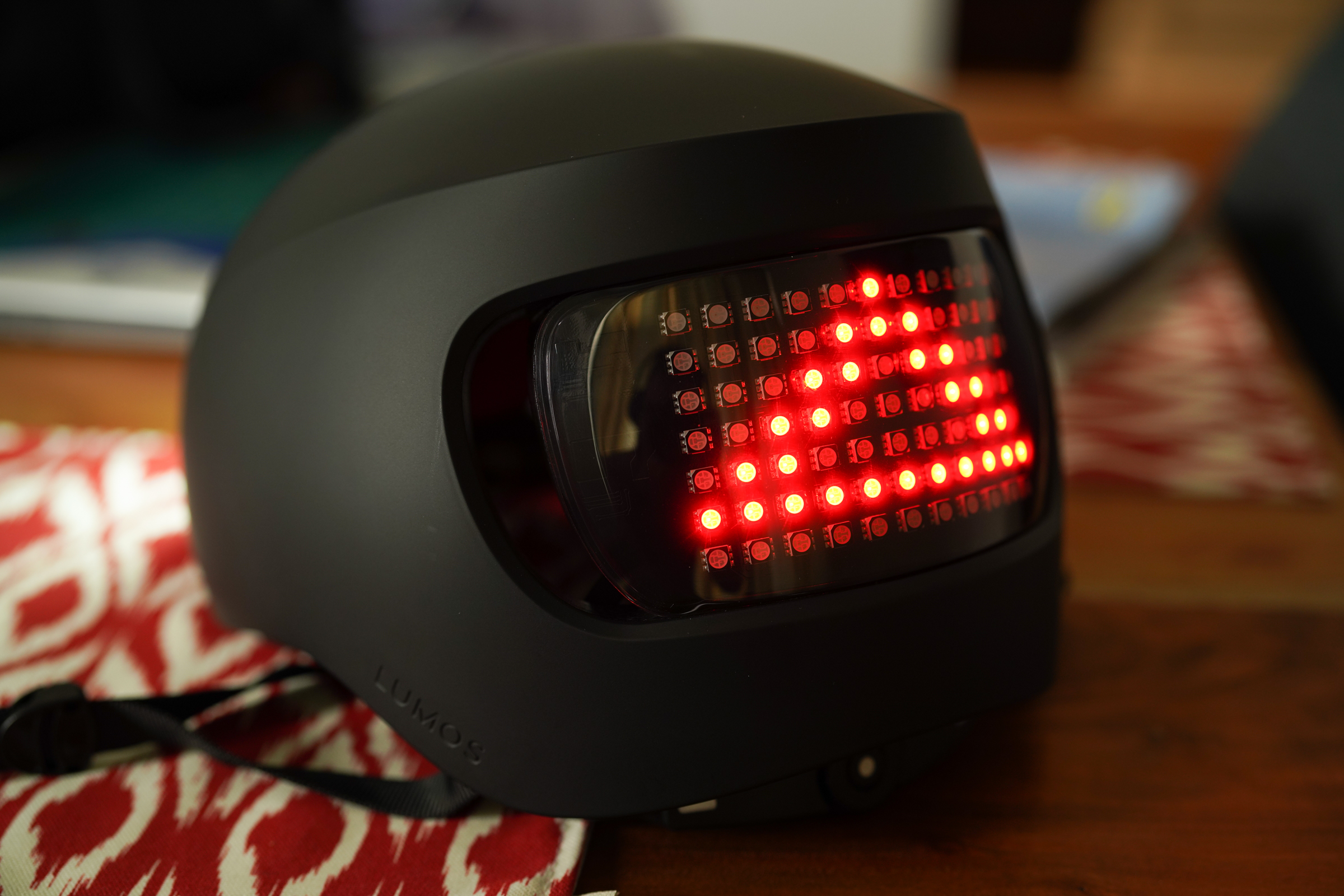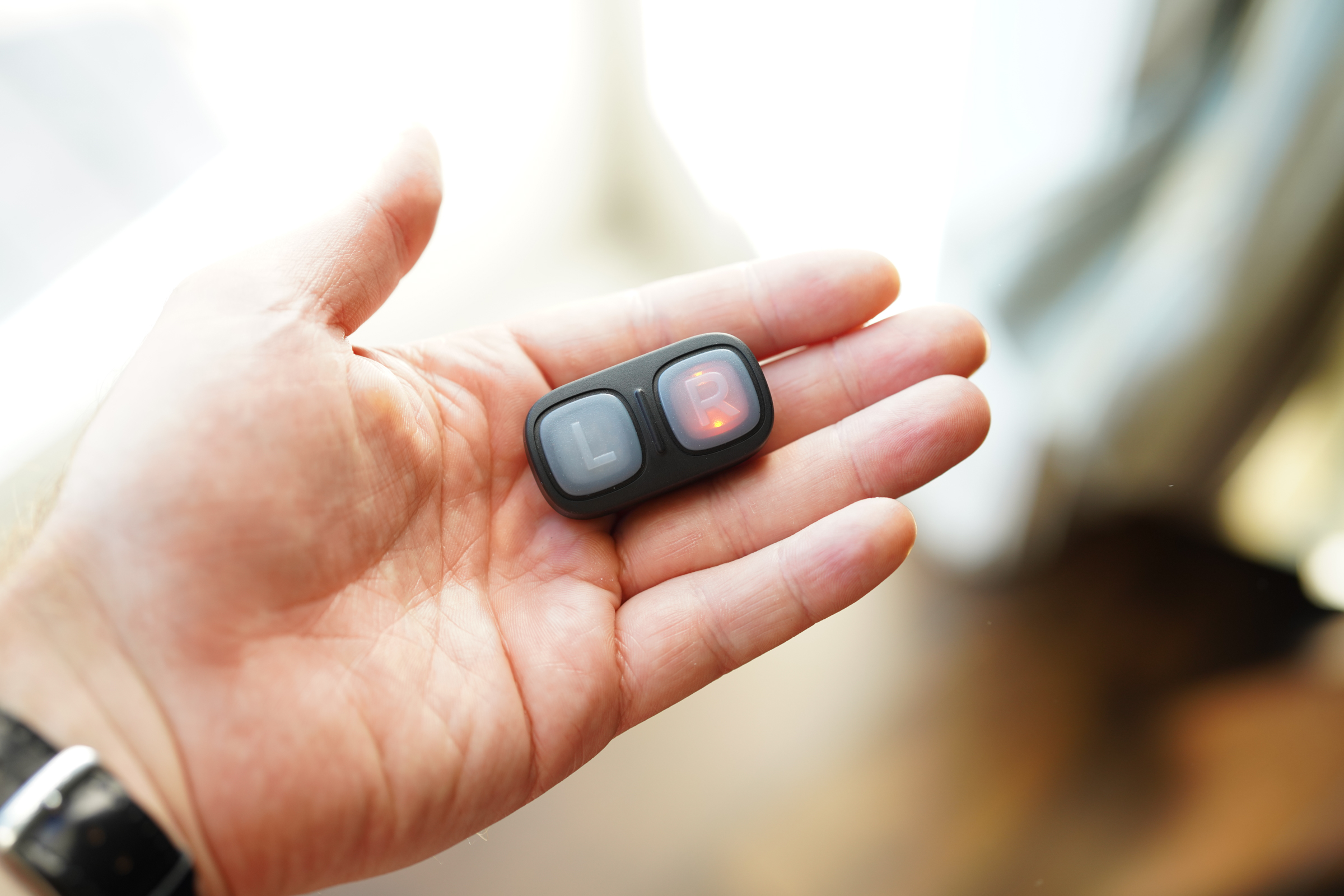With many of us are still more or less confined to our own homes and limited social spaces for the foreseeable future, and for a lot of you, that has led to a rediscovery of the joys of biking. Bike riding is a great way to spend time outdoors exploring your own town or city, and if you’re just getting into exploring this hobby, or if you’re a long-time bike rider looking for an upgrade, the Lumos Matrix smart helmet is a sensible piece of tech with a solid design that combines a number of connected features into one great package.
The basics
The Matrix is a version of Lumos’ smart helmet updated with modern, urban helmet aesthetics and a new large LED display on the back that can be programmed to show a variety of different patterns, including simple images. It includes a built-in front light in addition to the rear light panel, as well as integrated turn signals that work with an included physical handlebar remote, or in concert with an Apple Watch app. It’s available in either a gloss white finish, or a matte black (as reviewed).

Lumos has designed the Matrix to work with a wide range of head sizes, thanks in part to two sets of included velcro pads for the inside of the helmet, but due mostly to the adjustable, ratcheting sizing harness on the inside. This can be easily dialled to tighten or loosen the helmet, helping it fit heads ranging between 22 and 24-inches in size.
The exterior of the Lumos is made of an ABS plastic that provides full weatherproofing, so that you can wear it in the rain without having to worry about the condition of the embedded electronics. There’s also a MIPS (Multi-directional Impact Protection System) option that you can add on if you want an additional level of safety and security, though that’s not yet shipping and should be “available soon” according to the company.
 A button integrated into the helmet’s strap lets you turn it on and off, and cycle between the built-in patters. You can pair the helmet via Bluetooth with your smartphone, too, and use the dedicated app to customize features including brightness, and even creating your own custom patterns for the rear display. In the box, you’ll also find a charging cable with a standard USB A connector on one end, and a proprietary magnetic charging surface on the other for powering up both your helmet and the handlebar remote.
A button integrated into the helmet’s strap lets you turn it on and off, and cycle between the built-in patters. You can pair the helmet via Bluetooth with your smartphone, too, and use the dedicated app to customize features including brightness, and even creating your own custom patterns for the rear display. In the box, you’ll also find a charging cable with a standard USB A connector on one end, and a proprietary magnetic charging surface on the other for powering up both your helmet and the handlebar remote.
Design and performance
The Lumos Matrix features a mostly continuous surface, with four vents on the top of the helmet for airflow, with an integrated brim built into the shell. As mentioned, there’s a front-facing light built-in to the helmet and protected by a transparent plastic covering, as well as a rear panel of 7×11 led lights, which create a dot matrix-style display that can display images or animations, including scrolling text. These LEDs are all full RGB, allowing the user to take full advantage for their own, or built-in display creations.
Lumos also makes the Kickstart, which features a more aerodynamic, thoroughly vented design. The look of the Matrix is more akin to helmets used in skateboarding, and for urban commuter bicyclists. Despite its more solid-looking design, in testing I found that it was actually very comfortable and cool, allowing plenty of airflow. The helmet sits a bit high on the head, but has ample hard foam padding and definitely feels like a solid piece of protective gear. Overall, the extreme quality of the construction and level of the finishes on the Matrix help it earn its higher price tag.
 The Matrix is also comfortable, and the adjustable sizing straps ensure a snug fit that means the helmet won’t be shifting around at all while worn. The activation button located on the chin strap near your ear is easy to find and press, with a tactile response combined with an auditory signal so you’ll know it’s on. There’s also a built-in magnetic holder for the included two-button handlebar turn signal remote in the rear interior of the helmet itself, which is super useful when wearing the helmet out on errands.
The Matrix is also comfortable, and the adjustable sizing straps ensure a snug fit that means the helmet won’t be shifting around at all while worn. The activation button located on the chin strap near your ear is easy to find and press, with a tactile response combined with an auditory signal so you’ll know it’s on. There’s also a built-in magnetic holder for the included two-button handlebar turn signal remote in the rear interior of the helmet itself, which is super useful when wearing the helmet out on errands.
In terms of the smart features, Lumos has created a very sensible set of defaults for the on-board lighting that make it easy to just turn on the helmet and get riding. The built-in patterns offer a range of options, but all do the job of increasing your visibility – and the bright lighting means that it adds to your ability to be seen by motorists, other cyclists and pedestrians even while you’re biking in bright daylight.
The customizability of the rear dot matrix display is also super handy. Even if you’re not interested in creating colorful designs to express your artistic self, you can use it for much more practical reasons – like displaying a simple scrolling message (ie. ‘biking with kids’) in order to alert anyone else around to reasons to pay heightened attention.
 The included Lumos handlebar remote is paired out of the box, and is extremely reliable in terms of activating the turn signals on the helmet. Lumos’ smartwatch app was much more hit-or-miss for me in terms of recognizing my arm gestures reliably to automate the signalling, but that’s really a value-add feature anyway, and totally not necessary to get the full benefit of the helmet. The app’s integration with Apple Health for workout tracking while biking is also fantastic, and really adds to the overall experience of using the Matrix helmet.
The included Lumos handlebar remote is paired out of the box, and is extremely reliable in terms of activating the turn signals on the helmet. Lumos’ smartwatch app was much more hit-or-miss for me in terms of recognizing my arm gestures reliably to automate the signalling, but that’s really a value-add feature anyway, and totally not necessary to get the full benefit of the helmet. The app’s integration with Apple Health for workout tracking while biking is also fantastic, and really adds to the overall experience of using the Matrix helmet.
Bottom line
The Lumos Matrix is a fantastic bike helmet, with an amazing integrated smart lighting system that’s both bright and highly customizable. There’s a reason this thing is carried at Apple Stores – it’s top quality in terms of construction, software integration and design. That said, its retail price starts at $249.95 – which is a lot when you consider that a good quality MIPS helmet without smart features will only set you back about $60 or so.
When you consider just how much technology is onboard the Matrix, however, the pricing becomes a lot easier to swallow. It’s true that dedicated lights also aren’t expensive, but the ones on the Matrix are very high quality and extremely visible in all lighting conditions. And the Matrix offers unique features you won’t find anywhere else, including active turn signals and automated brake lights, which really add to your ability to safely share the road with other cyclists and vehicles.
Read Full Article
No comments:
Post a Comment